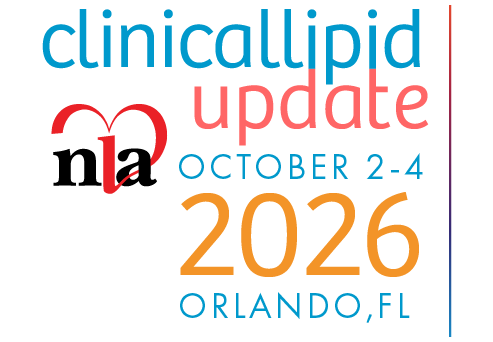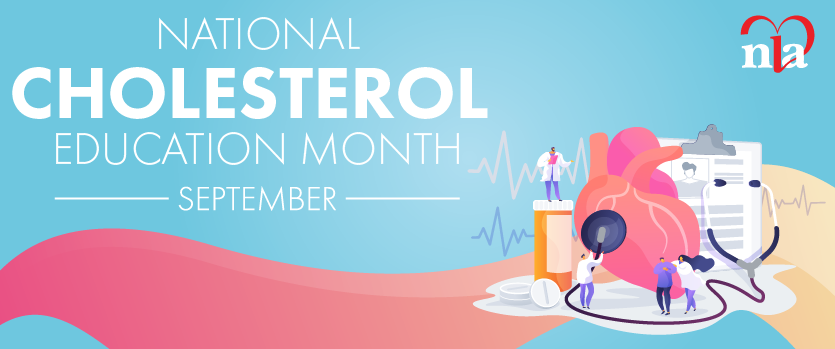Fall 2019 LipidSpin Articles
 DANIEL E. SOFFER MD, FNLA |
Guidelines and MentorshipDiscuss this article at www.lipid.org/lipidspin “I have never once dribbled the whole field and scored a goal by myself.” — Abby Wambach (retired US Women’s Soccer great) I am honored to have the unique opportunity to address LipidSpin readers as both its co-editor and guest editor (outgoing NELA President) for The Guidelines issue, a true team effort. The NLA continues to be a premier... more |
 KAREN ASPRY, MD, MS, FACC, FNLA |
Guideline Dissemination in the 21st Century – What a Difference 30 Years MakesDiscuss this article at www.lipid.org/lipidspin It has been more than 30 years since the first National Cholesterol Education Program (NCEP) lipid treatment guideline was published in January 1988 in the Archives of Internal Medicine.(1) At the time, few clinical practice guidelines existed. Moreover, the cholesterol hypothesis had generated considerable controversy, and the evidence to support a patient... more |
 DEVINDER SINGH DHINDSA, MD  ANURAG MEHTA, MD  LAURENCE S. SPERLING, MD, FACC, FACP, FAHA, FASPC |
Comprehensive Cardiovascular Risk Reduction in Patients with Diabetes – Emphasis of the 2018 Cholesterol GuidelinesDiscuss this article at www.lipid.org/lipidspin Diabetes mellitus (DM) is a leading cause of cardiovascular disease (CVD) and its associated morbidity and mortality.(1) DM confers the highest lifetime risk of any individual risk factor for developing cardiovascular disease. Although morbidity related to microvascular complications such as retinopathy, nephropathy and neuropathy is common, diabetic... more |
 EDWARD GOLDENBERG, MD, FACC, FACP, FNLA  HEATHER MILEA, MSN, FNP-BC, PCCN, CHFN  STEPHEN MENG, MD  RAVEEN CHAWLA, MD |
Family History – The Unsung Hero of Risk StratificationDiscuss this article at www.lipid.org/lipidspan Cardiovascular risk stratification is imperfect. There are multiple formulas with receiver operator curve (ROC) values, a measure of discrimination between predicted events and nonevents varying from 0.7 to 0.8. There are multiple risk scores. The Systematic Coronary Risk Evaluation (SCORE) model used in Europe is based on sex, age, systolic blood pressure... more |
 LEANDRO SLIPCZUK, MD, PhD, FACC  PREYA SIMLOTE, MD  DEAN G. KARALIS, MD, FACC, FNLA |
Insights from REDUCE-IT – A Sea Change in Preventing Cardiovascular DiseaseDiscuss the article at www.lipid.org/lipidspin Both genetic and observational studies have shown that elevated triglycerides (TG) are a marker of increased cardiovascular (CV) risk, even in statin-treated patients. (1) However, randomized clinical trials with TG-lowering drugs such as fibrates, niacin and low-dose omega-3 fatty acids (OM3FA) have failed to show any clinical benefit in patients already on... more |
 EDWARD GOLDENBERG, MD, FACC, FACP, FNLA  STEPHEN MENG, MD  HEATHER MILEA, MSN, FNP-BC, PCCN, CHFN  RAVEEN CHAWLA, MD |
Practical Pearls: A Personalized Approach to Risk StratificationDiscuss this article at www.lipid.org/lipidspin Clinical practice guidelines are integral to daily management of cardiovascular diseases, including hyperlipidemia. The most recent 2018 Multisociety Cholesterol Guidelines advocate for a more personalized approach to risk assessment. Consider the following vignette: A 50-year-old man of South Asian descent with... more |
 GUY L. MINTZ, MD, FACP, FACC, FNLA  RAMYASHREE TUMMALA, MD |
Borderline Risk is Immediate RiskLoretta is a 60-year-old white woman with a past medical history significant for hypercholesterolemia, mitral regurgitation, hypertension, pregnancy-induced hypertension (twice) and a family history of premature coronary heart disease (her father had myocardial infarction at age 53). Recent clinical examination is noted below: The patient has refused medical therapy for hypertension and does not even want to consider lipid-lowering therapy. ... more |
 DOUGLAS JACOBY, MD, FNLA  MICHAEL AYERS, MD |
New Cholesterol Guidelines – Coronary Artery Calcium Scores a WinIn October 2018, the American College of Cardiology (ACC) and the American Heart Association (AHA), in collaboration with the National Lipid Association and other organizations, published evidencebased guidelines on the treatment of blood cholesterol to reduce atherosclerotic cardiovascular disease (ASCVD).(1) Along with the guidelines, there was a special report summarizing the rationale and evidence base for the current quantitative risk assessment tools.(2) These newest iterations... more |
 SASHA DE JESUS, MD  MERLE MYERSON, MD, EdD, FACC, FNLA  EUGENIA GIANOS, MD, FACC, FASE, FNLA |
Guidelines for Lipid-Lowering in Women – What Have We Learned?Cardiovascular disease (CVD) remains the leading cause of death for women in the United States.(1) Unique factors affecting a woman’s health contribute significantly to CVD risk, but historically were not always represented in major guidelines. Some of these factors include hormonal changes, the presence of genderspecific risk factors and comorbidities more frequently seen in women (e.g. rheumatoid arthritis and systemic lupus erythematosus). Although women typically present with heart... more |
 BENJAMIN J. HIRSH, MD, FACC, FNLA |
Bringing Lipids Into the SpotlightA primary mission of the National Lipid Association (NLA) is to invigorate interest in lipidology-based prevention strategies amongst the healthcare community and the public at-large. Through diverse leadership direction and innovation, the Northeast Lipid Association (NELA) is having a successful year in achieving this mission regionally and nationally. We are excited by our members’ ability to educate and engage the public as we endeavor to bring lipids into the spotlight. As an... more |
 KENNETH KELLICK, PHARMD, CLS, FNLA |
Member SpotlightQ: How did your career path lead you to the Department of Veterans Affairs, and what does it mean to you to apply your knowledge and experience to the health and well-being of current and former servicemen and women? A: I was originally part of the faculty at University of Buffalo. Being exposed to the veteran population was extremely interesting in that there are patients with a lot of different disease states. I transferred from the university to the VA as one of... more |
|
Brought to you by the NLA Membership Council |
Did you know?NLA: Beneficial to Alllipid.orgFor Healthcare Professionals:The National Lipid Association (NLA) is a group of healthcare professionals who are truly dedicated to prevent cardiovascular disease and other disorders related to lipids and lipoprotein metabolism. Our mission is to enhance the practice of lipid management in... more |






.jpg)
.png)










